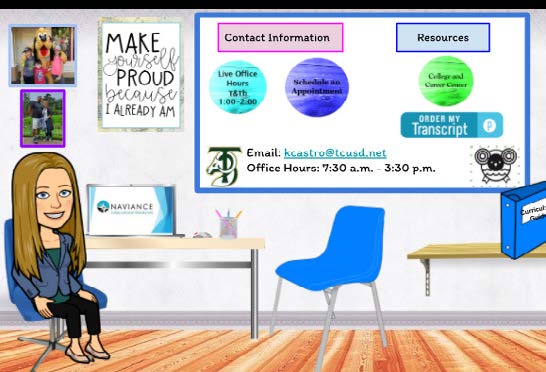By Irene Wong, Photo Editor
A counselor’s job requires a gamut of different tasks, especially in a virtual learning setting. From sifting through emails, designing Nearpod lessons and processing student referrals, the counseling department keeps one thing in mind: all their work is for the students. Even in this time of separation, counselors try to stay connected with students.
“Throughout all of this with the pandemic, there’s a change to the learning environment in the classroom,” counselor Kristen Castro said. “There’s a change to how we approach things. Some of the issues that we faced pre-pandemic are obviously still there. It’s just finding a way to adapt to our situation and figuring out ways we can help students do it just in a different setting like teachers do.”
Communication is on the front burner for counselors. Taking into account the lack of accessibility that meeting on campus brought, they now use virtual platforms to check up on students’ progress. Counselors consider Canvas to be the most accommodating among these mediums. Canvas aids in their efforts to adjust to remote learning such as streamlining communication en masse, Nearpod lessons or surveying the student body’s mental health concerns.
“The best thing that we feel that students can do is letting [the students] know that, yes, we’re virtual, but we’re still here and we’re not going anywhere,” Castro said. “When students come in or they’re having a hard time, a lot of times the first thing that they say is, ‘I’m sorry I’m bothering you I know you’re busy.’ But we just want [them] to understand it doesn’t matter how busy we are; the students take top priority.”
Counselors encourage students to check up on their mental health by directing them to pages filled with resources. They provide contact information for students to meet with them through Google Meets or Zoom. On their classroom pages, many include emergency hotline phone numbers. Counselors also recommend families who require external support to utilize Care Solace’s therapist-referring services.
“Whether that be through email, and appointment, we’re all reachable,” counselor Monica Viss said. “We’re all still here and want to be there for our students. You guys are the reason why we entered this field, and we’re passionate about what we do.”






